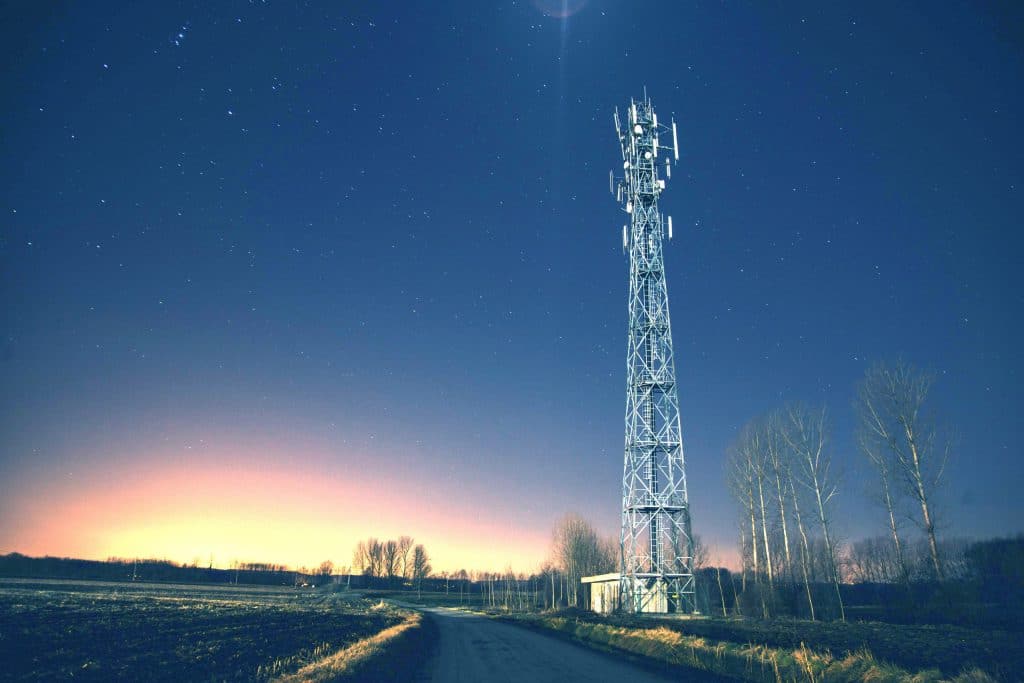Lighting, heating, connection
Ampleon specializes in radio frequency (RF) technology. They work on technological applications that enable the transport of large amounts of information and data via electromagnetic waves. The technology is essential for the infrastructure of mobile networks such as 4G and 5G in the near future, but also for radar systems, In addition to that, Ampleon is working on energy applications of RF technology, so that it can also be used for heating and lighting.
Stolk explains, "Our main expertise is making chips from semiconductor materials, which can be used to amplify signals at high frequencies. Amplifying such a signal is particularly difficult, because during amplification the risk of signal distortion increases with the height of the frequency. However, Ampleon has the technique, knowledge and experience to make these high-frequency amplifiers. A significant proportion of all mobile communication masts contain Ampleon amplifiers and over a third of all phone calls and mobile data traffic worldwide is possible thanks to chips from Nijmegen."
From 4G to 5G
The corona crisis has exposed some of the vulnerabilities of our mobile infrastructure. For example, providers experienced several failures. And even streaming services reduced their image quality at the request of the European Commission to avoid overloading the European network. With the rollout of 5G, in which Ampleon's low noise amplifiers will also play an important role, this will all be a thing of the past. Stolk explains, "Due to the large data capacity of the network, the chance of overloading is almost zero. And with this capacity, high data speeds and low signal delay, you will soon be able to hold videoconferences with enormous groups of people, without the glitches and delays. As a result, you will be able to interact with each other directly and remotely in all kinds of situations, such as work, education or otherwise."
"The healthcare and logistics sectors, both of which have proved crucial in recent times, will also benefit from the arrival of 5G in the form of new or improved applications," Stolk explains. "Think of remote care, medical checks and even remote operations. Supply chains and traffic flows can be controlled more directly with 5G. But above all, 5G offers the possibility of integrating advanced artificial intelligence applications into the control of these flows, making them more efficient and sustainable.”
Some providers can already offer "5G" in several areas of the Netherlands, through a technology called spectrum division. However, this is different to the actual 5G that is mentioned in the text above. Three broadband frequencies are to be made available for 5G in the Netherlands: 700 megahertz, 3,5 gigahertz en 26 gigahertz. On a 700 MHz frequency, datacapacity and speed slightly increase. However there won't be any noticable effect of this increase until the release of the 3,5 GHz-frequency. The auction of these frequences for mobile providers will take place in 2022. It is expected that first applications of this frequency will be aimed at industry, agriculture and medical care. Afterwards it will take another while before individuals can use this hyperfast network.
Adjust and continue
The knowledge of Ampleon is not only important for its customers and users in the current crisis, but the company itself also benefits from it, tells Stolk: “We have about fifty employees in China. They had travelled to their families because of the Chinese New Year, but were not allowed to return due to the corona measures. Some of them were in a remote area and had a very unreliable network, which made working from home impossible. We created 4G hotspots for those employees so that they could work remotely via a reliable mobile network.”
About the implications of the corona crisis for Ampleon as a company, Stolk states,
"A lot of people work from home. Ampleon is an international company and has already been holding many video meetings in the past, so that's not necessarily new. The production capacity is lower than before the crisis, but for the time being production is still continuing. After all, products and prototypes have to be made and tested. That's why the work continues in the laboratories, with stricter safety measures in place of course. We ourselves, are also dependent on suppliers of other products and semi-finished products, and we have to wait and see whether the entire supply chain will continue to run in the coming period. But we look at the situation from hour to hour and we do our best to keep the company running in these times".
All in all, Ampleon plays an important role worldwide in the communication of today and tomorrow. And whether there is a crisis or not, we all regularly use Nijmegen's Ampleon technology mostly without even realizing it. And while it may be invisible, above all it is indispensable.

